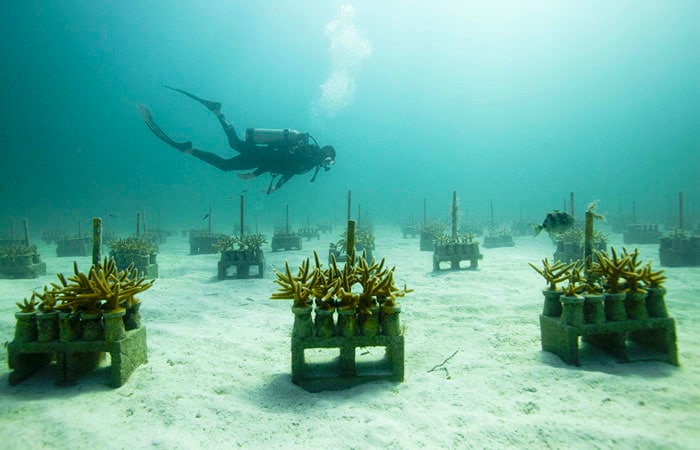Fact Friday

The ocean absorbs much of the excess carbon dioxide produced from the burning of fossil fuels. As the ocean absorbs this rampant increase in CO2, it reacts with sea water, changing the ocean’s chemistry. This process is called ocean acidification, and we are already seeing the negative impacts in our oceans. Here you can see the shell of the pteropod exposed to ocean acidification on the right is weaker and has visible damage, making it harder for the animal to survive.
Image credit: NOAA

May 2, 2025
Coral Nursery
Scientists are trying to mitigate the decline of corals. One way to do this is to grow and “plant” them. Coral ecologists grow corals in nurseries created either on land or in the ocean. As with most plants, you can break a leaf off and grow it into a whole new plant. The same process can be used to grow coral. When a piece of a coral is broken off, it can be regrown into another coral, and when they are large enough, they are transplanted from the nursery to the coral reef.
Photo Credit: James Byrne




